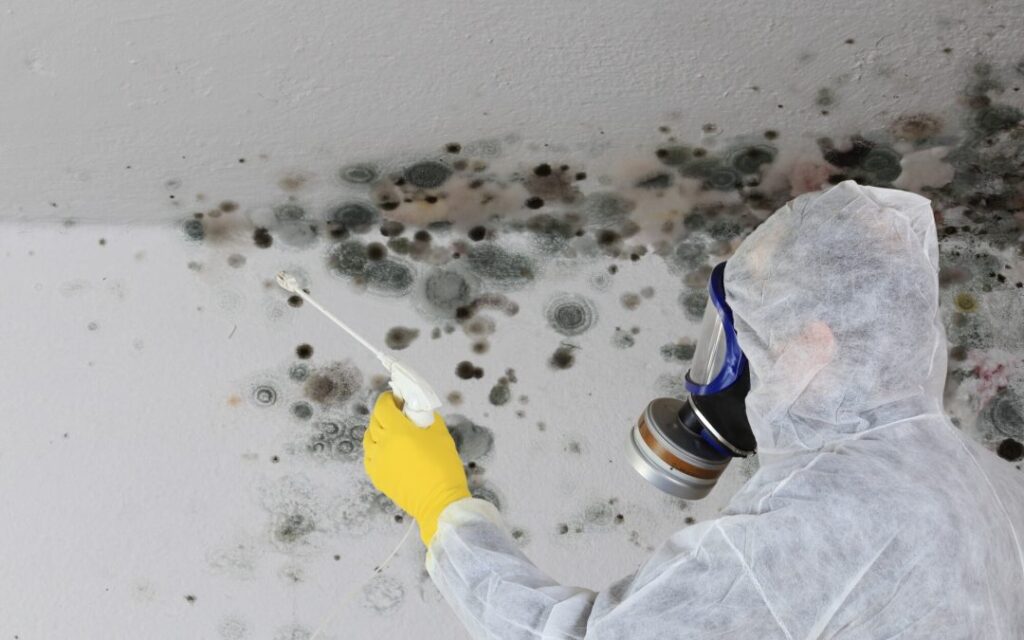Mold Testing Services Houston TX While the actual testing process itself may only take a few hours to complete, the overall timeframe from scheduling the appointment to receiving the final results can range from a few days to a couple of weeks.

Let’s delve into each stage of the mold testing process to understand the typical duration involved in Conroe:
- Initial Consultation and Scheduling:
- The process usually begins with an initial consultation and scheduling of the mold testing appointment. This can be done over the phone or through an online booking system offered by mold testing companies.
- The duration of this stage can vary depending on the availability of both the property owner and the mold testing company. It may take a few minutes to schedule an appointment or a few days to find a mutually convenient time.
- Preparation and Inspection:
- On the day of the scheduled appointment, a certified mold inspector will conduct a thorough inspection of the property to identify areas of concern and determine the sampling locations.
- The duration of the inspection can vary depending on the size and complexity of the property. For a typical residential property, the inspection may take anywhere from 30 minutes to a couple of hours.
- Sampling Collection:
- After the inspection, the mold testing technician will collect air and surface samples from various locations throughout the property. This may involve using specialized equipment such as air pumps, spore traps, swabs, or tape lifts.
- The duration of sampling collection can vary depending on the number of samples needed and the accessibility of the sampling locations. Collecting samples from multiple areas may take an additional 30 minutes to an hour.
- Laboratory Processing:
- Once the samples are collected, they are sent to a certified laboratory for analysis. The laboratory processing time can vary depending on the workload of the lab and the type of analysis being conducted.
- For standard mold testing services, the laboratory processing time typically ranges from 1 to 5 business days. However, expedited processing options may be available for an additional fee.
- Analysis and Reporting:
- After the laboratory processing is complete, the mold testing company will receive the results of the analysis. The certified mold inspector will then interpret the results and prepare a comprehensive report for the property owner.
- The duration of this stage can vary depending on the complexity of the analysis and the availability of the mold testing company. In most cases, the report is provided to the property owner within 1 to 3 business days after receiving the laboratory results.
- Recommendations and Follow-Up:
- Upon receiving the mold testing report, the property owner will review the findings and recommendations provided by the mold testing company. This may include suggestions for remediation, moisture control measures, and preventive strategies.
- The property owner may choose to follow up with the mold testing company for additional guidance or clarification on the recommendations. This stage can vary depending on the property owner’s needs and the complexity of the remediation efforts.
- Remediation Planning and Implementation:
- If mold remediation is necessary based on the findings of the mold testing report, the property owner will begin planning and implementing remediation efforts. This may involve hiring a professional mold remediation company to address the mold contamination.
- The duration of remediation planning and implementation can vary depending on the extent of the mold contamination, the availability of remediation contractors, and the complexity of the remediation process. It may take anywhere from a few days to several weeks to complete remediation efforts.
Mold Testing Services Houston TX It’s essential for property owners to work closely with certified mold testing professionals to ensure that the testing process is conducted efficiently and effectively, leading to accurate results and appropriate remediation actions.
Mold Testing Houston
5926 Dellfern Dr, Houston, TX 77035, United States
1-832-409-2125
